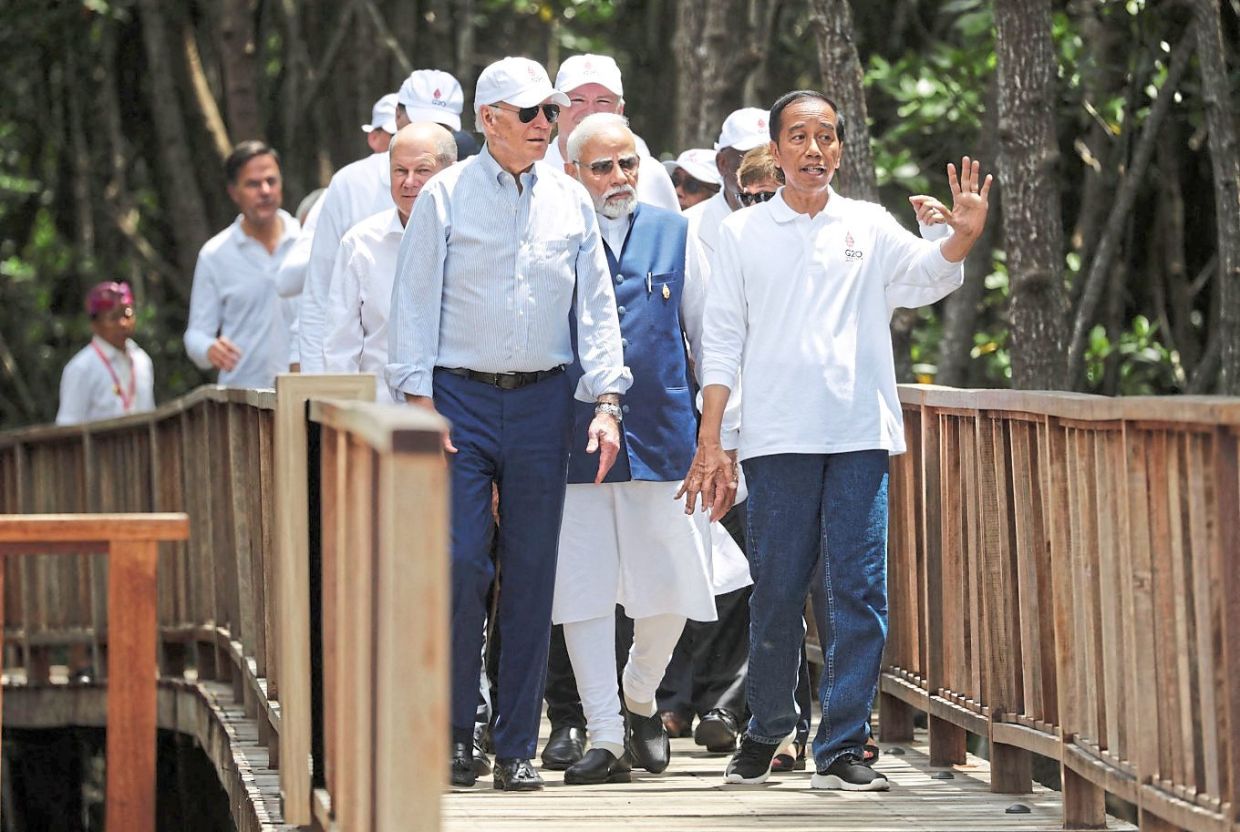INTERESTING to note that after the euphoria of the Indonesian presidential election, many pundits have offered their views on the country’s foreign policy, including on who should be the next foreign minister.
Advice has been given on the need to shake the Foreign Ministry out of its “comfort zone”.
Let me put my five cents into the discussion.
First, I certainly agree on the need to be creative and explore new strategies to further our diplomatic interests. But traditions are not necessarily a bad thing. Our diplomacy is based on a free and active foreign policy, which is not simply jargon, it is what we have practiced for decades.
Our tradition of being non-aligned while championing humanity earned the country praise and respect when I served on the United Nations Security Council. We have not shied away from criticising countries, developed as well as developing, when they have abused human rights or gone against the UN charter. Our tagline is saving human lives. We don’t play global politics if life is at stake.
Second, Asean is an important regional organisation and should not be looked at only for its flaws. No multilateral organisation is without its deficiencies, including the UN and the Bretton Wood Institutions. Asean has contributed to regional stability, economic growth and prosperity in the region, including in Indonesia. The issue is how we make Asean better, including improving its mechanisms, decision-making and responsiveness.
Third, in the midst of a geo-rivalry tempest, Indonesia is well situated to play a larger role, not simply as a leader of the Global South, but as a global player. As a country respected for its diplomatic track record, we have the comparative advantage of being a trustworthy and credible partner, thus able to be accepted in every instance. Proof of this is our landslide candidacy in many UN organisations, our respected peacekeepers and our mediating role in many conflict areas, to name a few examples. President Joko “Jokowi” Widodo is the only head of state who could visit Kyiv and Moscow back-to-back, which is no small feat.
Fourth, our foreign policy is based on the Preamble of the 1945 Constitution, which does not need reinterpretation. What is needed is a look at how we are able to adapt to the changing global realities and future challenges, and design the appropriate foreign policy objectives that is are tune with the global challenges, mechanisms and machinery, as well as the tools to deliver.
What we need for the future is a foreign policy that can protect our economic and security interests and way of life, while also playing a global role in the maintenance of peace and prosperity. This relates to the issue of ensuring the prosperity of the people and preserving Indonesia’s national identity, culture and dignity.
Protection entails ensuring the sovereignty and security of our territory and people so economic growth can prevail. Be it in the form of defence diplomacy, economic diplomacy, regional/multilateral diplomacy and many other variants of diplomacy. Protecting Indonesia’s economic interests could be in the form of promoting bilateral trade, investment and tourism; regional economic arrangements; ensuring fair multilateral rules; addressing climate change and energy security and harnessing digital opportunities, etc.
My final point is that it is hard to digest the notion that in the past, Indonesia’s diplomacy was settled in a comfort zone. Experience shows us that over the past decade, our diplomacy has been tested due to rapidly changing geopolitics, the pandemic and conflicts in many parts of the world that have affected our economy. It is far from comfort and business as usual. Had Foreign Minister Retno LP Marsudi not ordered Indonesian diplomats all over the world to secure Covid-19 vaccines during the pandemic, we might have endured a catastrophe.
If the Foreign Ministry was in a comfort zone, why has Indonesia been bold and principled on the issue of Myanmar and very outspoken on Palestine when the stakes are high, as a superpower deliberately supports Israel despite it having violated many UN resolutions?
In the case of the Group of 20, Indonesia’s role in times of crisis has been principled in nature and based on rules and precedence. When asked by some G20 members to expel Russia from the group, Indonesia took principled steps by trying to bridge differences and ensure the survival of the G20. It would be much “safer” to simply bow to the pressure from our major trading partners.
Graham Allison, a foreign policy analyst, said there were many ways to make foreign policy. One is the rational actor model, where the policymaker is rational in its decisions.
Another is the bureaucratic politics model, where competing entities and stakeholders decide. Our foreign policy is a mix of both. The foreign minister has a clear reason for forming the foreign policy, and she works with all actors to implement it.
This makes it easier for the international and domestic communities to understand and support our foreign policy. It is all about trust and credibility.
In an open and transparent world where information and opportunities for public scrutiny are readily available, now more than ever a rational and trustworthy foreign minister is needed, who knows the diplomatic craft, has negotiation capabilities and a vision for the future.
We do not have the luxury of being able to make errors of judgment or mishaps where conflict can easily arise.
To coin a phrase, our diplomacy is not in the business of securing credit points but in the business of managing relations, for our national interests. Beauty has always been in the eye of the beholder. — The Jakarta Post/ANN
Dian Triansyah Djani is former Indonesian permanent representative to the United Nations.
